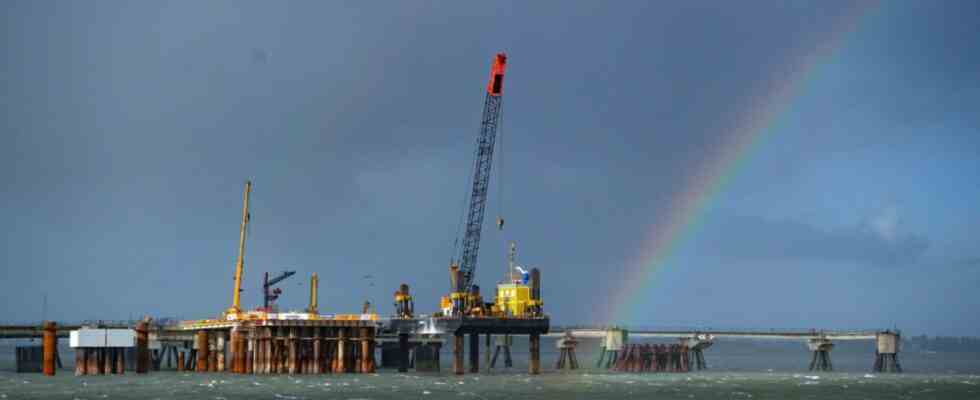The fight against rising energy prices has been a recurring topic at EU summits for a year now. And it’s always good for a hearty argument. It will be no different this Thursday and Friday when the 27 heads of state and government meet in Brussels. In contrast to otherwise, the leaders, as they are called in the EU bubble, but this time are bending over detailed proposals from the Commission to lower gas prices. Agency head Ursula von der Leyen presented a whole package on Tuesday, shortly before the top meeting. However, this will undoubtedly be too narrow for some heads of government.
Finally, more than half of EU governments, including France and Italy, have called for the introduction of a gas price cap. Opinions in this camp differ on the question of whether this cap should only apply to import prices or to all wholesale transactions. In any case, von der Leyen’s proposal is likely to fall short of the claims of most of these governments. The German only wants to create the possibility of introducing a state upper limit in the event of extreme price increases – and only for a few months and at a high level that does not fuel consumption or scare off producing countries. It’s more of a lid than a lid. That in turn should be very much in the interests of the federal government, which constantly warns of the risks of hard price limits.
Brussels wants to reallocate 40 billion euros
Some governments are also promoting EU-wide subsidies for gas purchases from gas-fired power plants. These expensive power plants drive up the price of electricity because it is based on the provider with the highest costs. Making gas purchases cheaper would lower the electricity price. Spain and Portugal have already implemented the model, but since then the gas consumption of the power plants there has increased – an undesirable side effect. The Commission is now forgoing a corresponding proposal for the time being and refers to the difficult open questions. However, the authority vowed to continue working with EU governments on instruments to reduce the influence of the gas price on electricity quotations.
The heads of state and government will certainly also talk about how Brussels can make more money available to the countries for aid programs. The 200 billion euro protective shield that Germany is putting up for its citizens and companies has fueled fears of distortion of competition in some governments. After all, not all states can afford such packages. Von der Leyen is now proposing to use funds from EU pots that have not yet been used to promote regions that have been left behind.
Numerous governments have still not used all of the funds to which they are entitled from the past seven-year budget plan, i.e. the one for 2014 to 2020. The Commission wants to relax the rules on use, so that member states can use the money to fund support programs for citizens and small businesses. The change should loosen almost 40 billion euros.
Von der Leyen calls for more solidarity
Von der Leyen also announced that he would soon be presenting a proposal on how more money could be put into the “Repower EU” project. Behind this lies the ambitious plan to make the Union completely independent of energy imports from Russia. To this end, the Commission supports investments in pipelines, power grids or renewable energies. The German says she wants to “strengthen the firepower” of Repower EU.
In addition, the Commission is addressing the problem that energy traders and suppliers have to deposit high securities for their orders – a result of the increased and strongly fluctuating prices. This is already putting some companies in financial difficulties. The authority is therefore relaxing the rules for collateral; Corporations can now use guarantees as collateral in addition to money.
The Commission also wants to better prepare Europe for emergencies. Von der Leyen complains that EU governments have concluded far too few solidarity agreements with each other – only six out of a possible 40. “That’s not good enough,” she says. With these agreements, member states undertake to provide assistance if the contractual partner runs out of gas. For example, Germany has only signed treaties with Denmark and Austria, but not with the other neighbors.
The Commission is therefore proposing a standard set of rules to apply when no agreement has been signed. Countries without gas should therefore be able to rely on receiving the raw material from other EU countries. “European solidarity,” says von der Leyen, “is the best insurance policy for all member states.”

